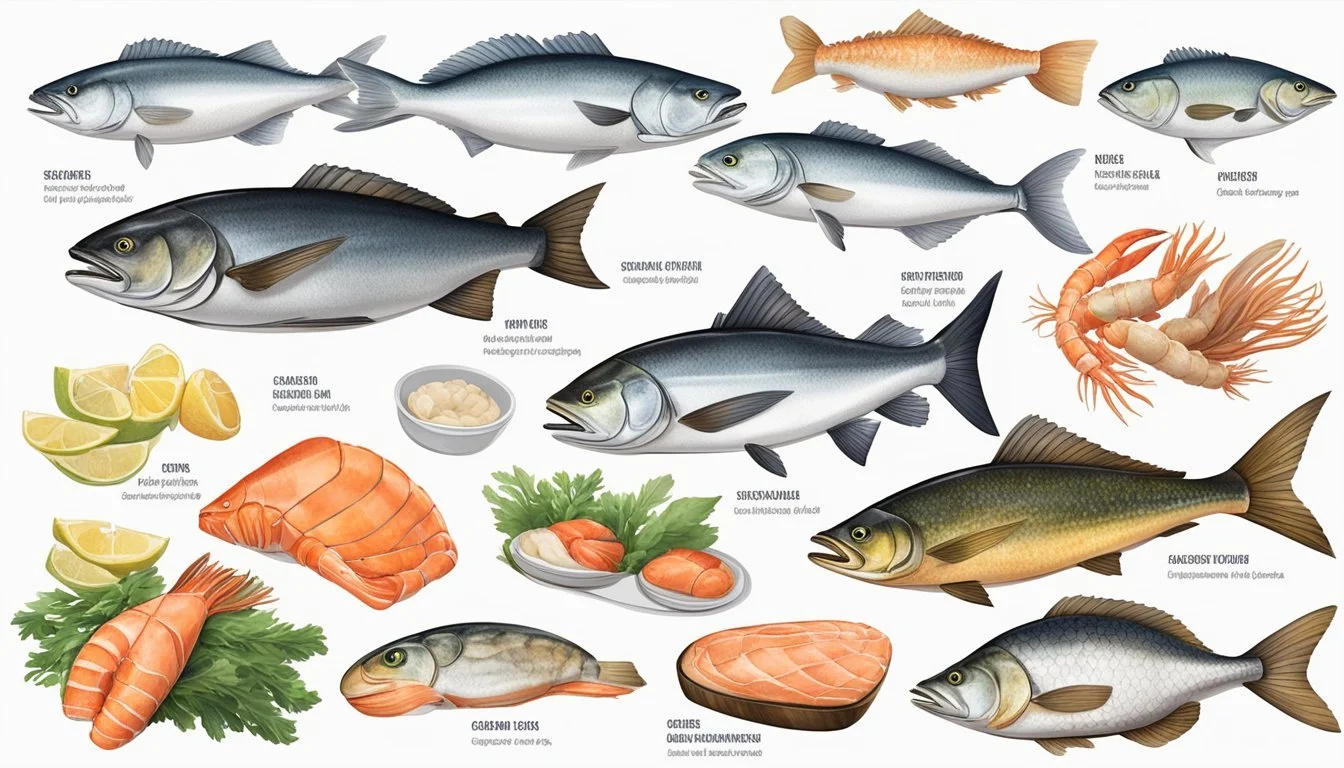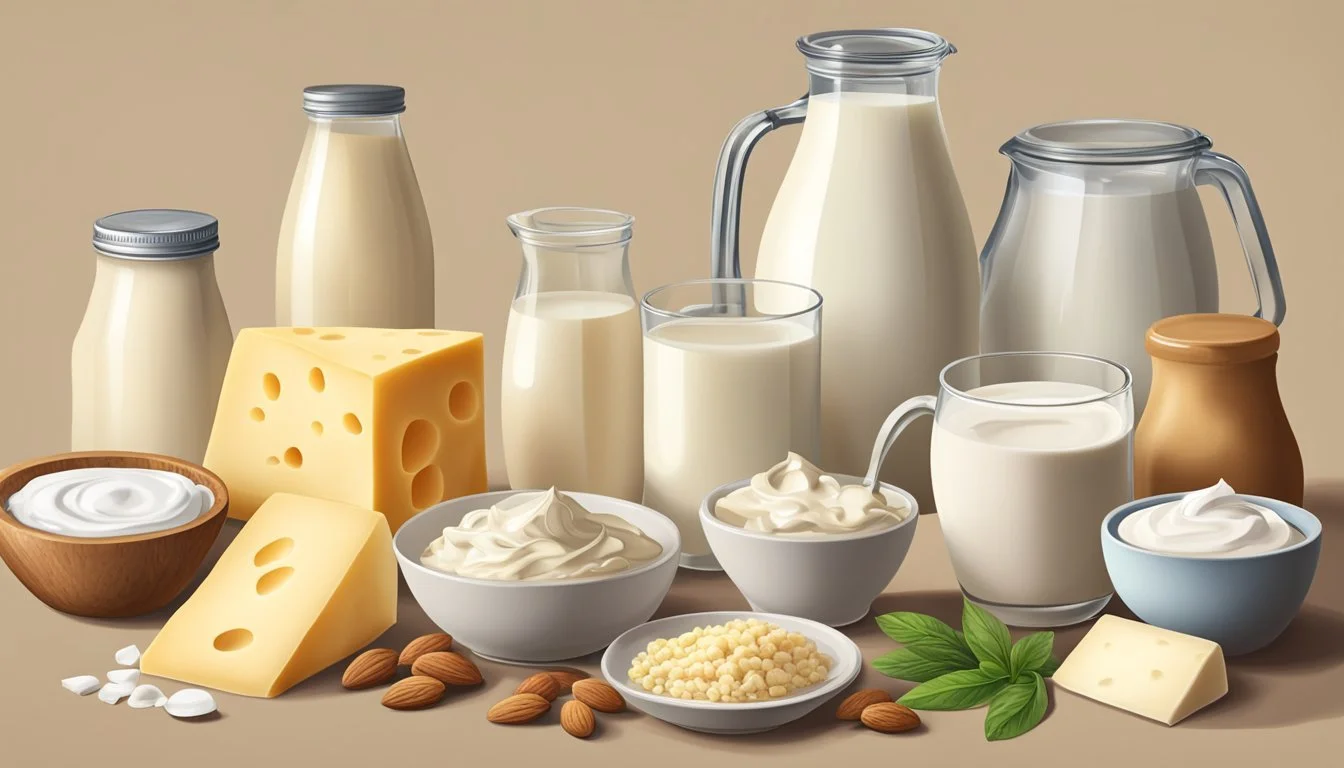No-Carb Food List: Your Ultimate Guide to Zero-Carb Eating
Switching to a no-carb diet can seem daunting at first, but it doesn't have to be. By focusing on a variety of meats, seafood, fats, and select vegetables, it is possible to craft a nutritious and satisfying low-carb or ketogenic diet. The key to a successful no-carb plan is understanding which foods are truly zero-carb and how to incorporate them into your daily meals.
One of the greatest advantages of a no-carb food list is its simplicity. Foods like grass-fed butter, ghee, and olive oil not only contribute zero carbs but also offer essential nutrients. Moreover, seafood, such as salmon and shrimp, alongside meats like beef and chicken, form the backbone of a robust no-carb diet.
By diversifying food choices, individuals can avoid dietary monotony and still adhere to no-carb limitations. Leafy greens like kale and spinach can be included in moderation, providing essential vitamins without excess carbs. Embracing these foods can pave the path to healthier eating and effective weight management.
Understanding No-Carb Diets
No-carb diets focus on reducing carbohydrate intake to a minimum, encouraging the consumption of proteins and healthy fats. This approach can support weight loss and improve certain health markers, but it's crucial to understand its principles and health implications.
Principles of a Ketogenic Diet
The ketogenic diet operates on the principle of dramatically reducing carbohydrate intake and replacing it with fat. By doing so, the body enters a metabolic state called ketosis.
In ketosis, the body becomes highly efficient at burning fat for energy. Net carbs are a critical concept here, representing total carbohydrates minus fiber.
This diet emphasizes foods like meats, fish, eggs, dairy, and oils, minimizing sugar, bread, pasta, and starchy vegetables. Protein is also a component but must be moderated to prevent excessive glucose formation through gluconeogenesis.
Healthy fats such as olive oil, avocado, and nuts are staples. These fats support energy needs and help maintain ketosis effectively.
Health Benefits and Considerations
A ketogenic diet offers multiple health benefits, including weight loss and improved insulin sensitivity. Many individuals find that they can lose weight more efficiently on this diet due to reduced hunger levels.
However, restricting carbs can lead to nutritional deficiencies if not planned properly. It’s essential to ensure adequate intake of vitamins and minerals, often through supplements or careful food choices.
Constipation can be a concern due to low fiber from limited fruits, vegetables, and whole grains. Ensuring sufficient water intake and incorporating low-carb, high-fiber foods like leafy greens can alleviate this issue.
It’s also vital to regularly monitor health markers, especially cholesterol and blood glucose levels. Consulting with a healthcare provider before starting a no-carb or ketogenic diet is highly recommended to tailor the diet to individual health needs.
Essential No-Carb Foods
For those adhering to a no-carb diet, it is crucial to focus on foods that contain minimal to no carbohydrates. The following sections highlight key categories such as animal-based proteins, plant-based fats and oils, and essential condiments and seasonings that can support a carbohydrate-free lifestyle.
Animal-Based Proteins
Animal-based proteins are fundamental in a no-carb diet due to their negligible carbohydrate content. Meat options like beef, lamb, pork, chicken, turkey, and duck provide excellent protein sources without added carbs. Game meats, such as venison, also fit well. Organ meats like liver and kidney offer nutritional benefits, including essential vitamins and minerals, without carbs.
Fish and seafood are versatile choices. Options like salmon, tuna, shrimp, and crab are not only rich in protein but also provide healthy fats, especially omega-3 fatty acids. Eggs should also be highlighted due to their versatility and low carbohydrate content, making them perfect for a variety of dishes from breakfast to dinner.
Plant-Based Fats and Oils
Incorporating healthy fats is essential for a balanced no-carb diet. Oils such as olive oil, coconut oil, and avocado oil are prominent choices. Olive oil is praised for its heart-healthy benefits and suits various cooking methods. Coconut oil, rich in medium-chain triglycerides (MCTs), is also advantageous for energy and metabolism.
Ghee, or clarified butter, adds a rich taste while being free from lactose and casein. Lard, composed primarily of monounsaturated fats, is another option for high-heat cooking. These fats are critical for maintaining energy levels and supporting overall health when carbohydrates are restricted.
I highly recommend purchasing ghee and lard online for a convenient shopping experience!
Condiments and Seasonings
To add flavor to a no-carb diet, condiments and seasonings are vital. Spices and herbs such as basil, rosemary, thyme, and oregano can transform meals while keeping carb counts minimal. Salt and pepper are basic but essential seasonings that enhance the taste of various dishes.
Vinegar, including apple cider and balsamic, adds tang without carbs. Mustard and hot sauce bring zest and can be used liberally, provided there are no hidden sugars. These additions help avoid blandness and ensure meals remain enjoyable while adhering to dietary goals.
If you're looking for salt, pepper, apple cider vinegar, balsamic vinegar, mustard, and hot sauce, buying it online is your best bet!
Select Seafood Options
Seafood is an excellent source of protein and healthy fats, making it ideal for those following a no-carb diet. This section covers some of the top no-carb seafood choices, focusing on their nutritional benefits and variations.
Fatty Fish and Shellfish
Fatty fish such as salmon, tuna, and sardines are packed with omega-3 fatty acids. These beneficial fats support heart health and reduce inflammation. For example, salmon is rich in protein and high in vitamins B and D. Tuna offers a leaner option while still providing significant protein content.
Shellfish like oysters, scallops, and mussels also provide valuable nutrients despite their slightly higher carb content. Oysters contain zinc and selenium, while scallops are low in fat and high in protein. Mussels offer a good balance of protein and essential minerals.
For zero-carb options, cod and crab are standout choices. Cod provides lean protein without carbs and is versatile for many recipes. Crab is not only delicious but also contributes essential nutrients like selenium and vitamin B12.
In addition, lobster offers a luxurious no-carb option that is high in protein and low in fat when prepared simply. All these seafood options fit well in a no-carb diet, offering variety and significant nutritional benefits.
Dairy and Dairy Alternative Products
In the realm of no-carb diets, dairy and dairy alternatives offer a variety of options. From cheeses to different creams, these products add flavor and texture without contributing significant carbs.
Cheeses and Creams
Cheeses: Many cheeses are considered no-carb or very low-carb. Cheddar, Parmesan, and Mozzarella are excellent choices. They provide essential nutrients such as calcium and protein while maintaining a low carbohydrate content.
Creams: Heavy cream and whipping cream are also nearly carb-free. They can be used in coffee, soups, and sauces. When selecting cream, it's crucial to choose full-fat versions to avoid hidden carbs which can be present in light or reduced-fat varieties.
Leafy Greens and Low-Carb Vegetables
Leafy greens and low-carb vegetables offer a range of essential nutrients while being suitable for low-carb diets. They are rich in vitamins, minerals, and antioxidants, with most varieties containing minimal carbohydrates.
Nutrient-Dense Vegetables
Spinach and kale are packed with iron, calcium, and vitamins A, C, and K. These leafy greens are extremely low in net carbs, making them ideal for maintaining a keto or low-carb diet.
Broccoli and cauliflower are cruciferous vegetables known for their fiber and vitamin content. Broccoli provides vitamin C and K, while cauliflower is a versatile substitute for higher-carb foods.
Mushrooms and zucchini are other low-carb options. Mushrooms are rich in antioxidants and B vitamins whereas zucchini is high in vitamin C and potassium, perfect for various dishes, from salads to sautés.
Asparagus, arugula, and celery feature prominently for their low-carb profiles and nutrient density. Asparagus is high in folate and vitamins A, C, and K. Arugula and celery offer crunch and hydration, with arugula particularly rich in calcium.
Olives and lettuce are staples in low-carb diets. Olives are high in healthy fats and antioxidants, making them great for snacking. Lettuce, especially variants like romaine and iceberg, offers hydration and are extremely low in carbs.
Swiss chard and other greens provide a nutrient boost with minimal carbs, rich in vitamins A, C, and K, and beneficial for overall health.
Vegetable Net Carbs (per 100g) Spinach 1.4g Kale 3.4g Broccoli 4g Cauliflower 3g Mushrooms 3.3g Zucchini 2.1g Asparagus 3.9g Arugula 2.1g Celery 1.4g Olives 3.1g Lettuce 1.2g Swiss Chard 2.2g
These vegetables should be included in low-carb meal plans due to their health benefits and low carbohydrate content.
Nuts, Seeds, and Legumes
Nuts and seeds can be excellent low-carb choices for those on strict diets, often providing essential fats, proteins, and nutrients while keeping carb intake low.
Low-Carb Choices
Nuts such as macadamia and pecans are beneficial for low-carb diets. Macadamia nuts are high in fat and extremely low in carbs, making them a perfect ketogenic snack. Pecans are another excellent choice, offering a delicious, low-carb option with roughly 4 grams of net carbs per 100 grams.
In addition to nuts, seeds like chia and flaxseed can be important components of a low-carb diet. Chia seeds, for instance, provide fiber, omega-3 fatty acids, and only about 1.7 grams of net carbs per ounce.
When selecting nuts and seeds, it's crucial to watch portion sizes to make sure they fit within the daily carb limits. These nutrient-rich snacks can easily be integrated into various recipes or consumed on their own for a quick boost of energy and nutrition.
Zero-Carb Beverages
Zero-carb beverages are essential for those seeking to maintain ketosis or a low-carb diet. These beverages include pure liquids such as water, tea, and coffee that contain no carbohydrates.
Pure Liquids
Water is the ultimate zero-carb beverage. It hydrates and aids in numerous bodily functions without adding any carbohydrates.
Tea can be enjoyed in various forms such as black, green, and herbal teas. When consumed without additives like milk or sugar, tea remains a zero-carb drink.
Coffee also fits the criteria when drunk black. It's important to avoid sweeteners or creamers that contain carbs.
Hard Liquor such as vodka, whiskey, and gin typically contain no carbs. However, mixers should be avoided as they can add unwanted sugars.
Additional No-Carb Ingredients
Exploring no-carb foods can greatly expand your dietary options, making it easier to stay on track with low-carb or ketogenic goals. This section focuses on no-carb sweeteners and flavorings, as well as snacks and convenience foods that can be easily incorporated into daily meals.
Sweeteners and Flavorings
When maintaining a no-carb lifestyle, finding suitable sweeteners and flavorings is crucial. Stevia and monk fruit are popular natural sweeteners that contain zero carbs. They provide the sweet taste people crave without spiking blood sugar levels.
MCT oil and coconut oil are excellent for adding flavor and healthy fats to dishes. MCT oil, derived from coconut oil, is a powerful ingredient that supports ketosis and can be used in coffee, smoothies, or salad dressings.
For savory flavorings, natural herbs and spices like basil, thyme, and rosemary are carb-free options that can enhance the taste of any meal. Be vigilant with blends or pre-mixed seasonings, as they might contain hidden sugars or starches.
Snacks and Convenience Foods
Convenient snacks are essential for maintaining a no-carb diet without feeling deprived. Pork rinds are a crispy, satisfying option that contains zero carbs. They can be eaten plain or used as a crunchy topping on salads.
Beef jerky and other dried meats like bacon, sausage, and pepperoni are also great choices. Opt for varieties with no added sugars or fillers. It's important to read labels carefully to ensure there are no hidden carbohydrates.
Avocados make for a nutrient-dense, no-carb snack when seasoned minimally. Ready-to-eat packs of avocado can be a time-saver. Keep hard-boiled eggs on hand for a portable, no-carb snack rich in protein.
These snacks not only help keep carbohydrate intake in check but also provide convenient options that support a structured and successful no-carb diet.
Meal Planning and Preparation
A successful no-carb diet involves careful meal planning to ensure nutritional balance, especially focusing on adequate protein and healthy fats. It's also essential to navigate dining out and social occasions without compromising dietary goals.
Creating Balanced No-Carb Meals
Creating no-carb meals requires a strategic balance of protein and healthy fats. A typical plate might include grilled chicken breast or beef steak as the main protein source. Complement these proteins with healthy fats from avocado slices, olive oil, or butter.
Eggs can be a versatile meal component, working well for breakfast, lunch, or dinner. For additional fat, consider adding cheese like cheddar or parmesan—just ensure it's unprocessed.
For variety, seafood such as salmon or shrimp not only offers high protein but also beneficial omega-3 fatty acids. Incorporate low-carb vegetables sparingly in quantities that adhere to your dietary plan.
Organic meats and fats are recommended to avoid processed components. Consider roasting, grilling, or air frying to keep the nutrients intact.
Tips for Dining Out and Social Occasions
Dining out while maintaining a no-carb diet can be challenging but manageable with specific strategies. Opt for salads with protein toppings and request dressings on the side. Grilled meats, fish, and poultry are usually safe bets.
Avoid bread, pasta, and starchy side dishes, instead ask for extra vegetables or a side of avocado. Educate yourself on menu items beforehand and don't hesitate to ask about ingredients or preparation methods.
At social gatherings, bring a no-carb dish to share, ensuring you have something suitable to eat. Focus on protein-rich options such as meat platters or cheese boards.
Staying keenly aware of your choices and planning ahead can significantly support your no-carb lifestyle, even in social settings.
















